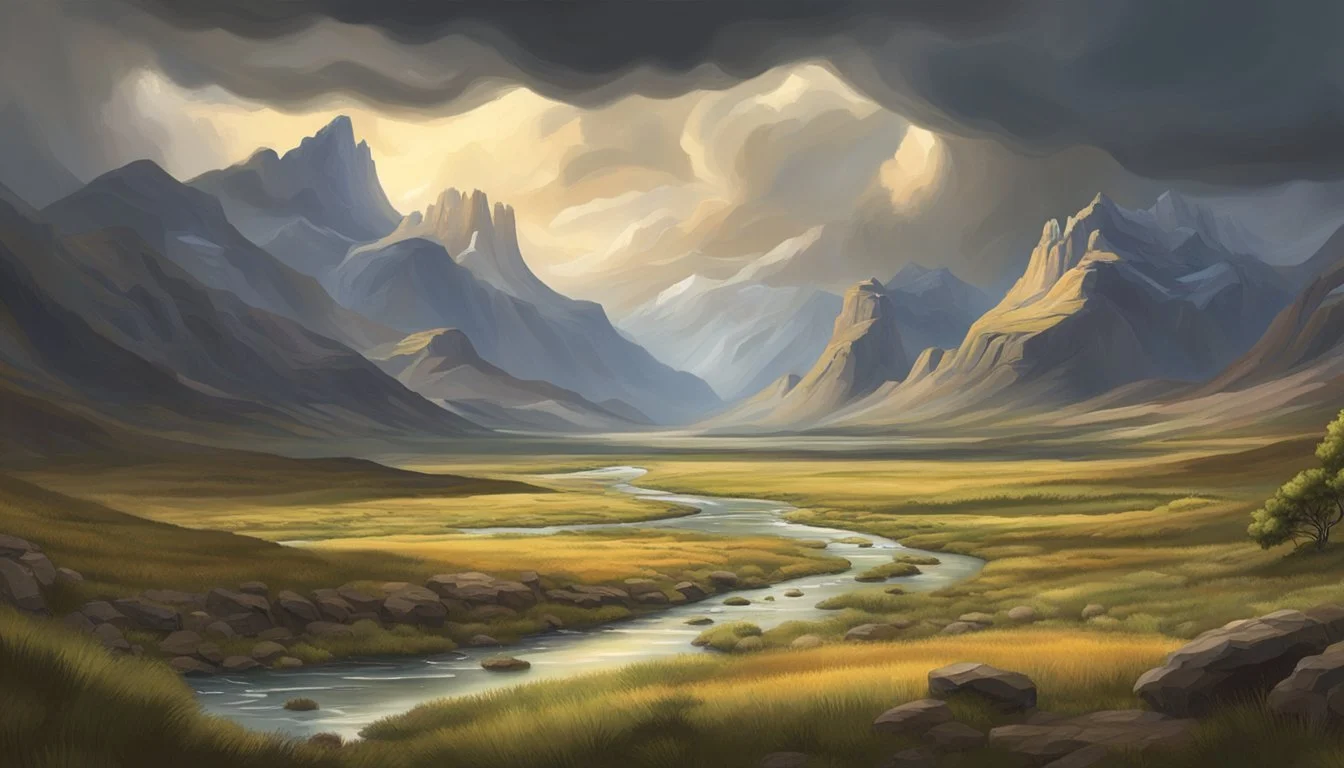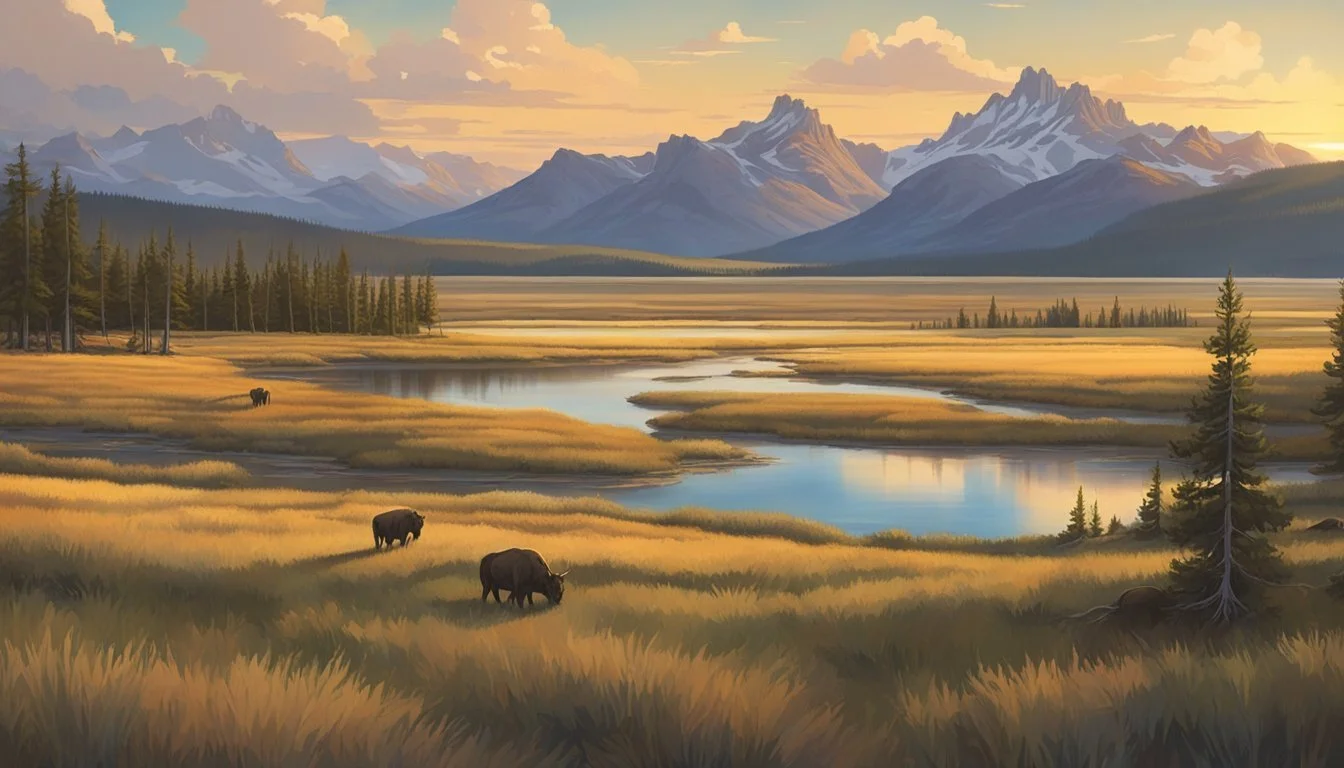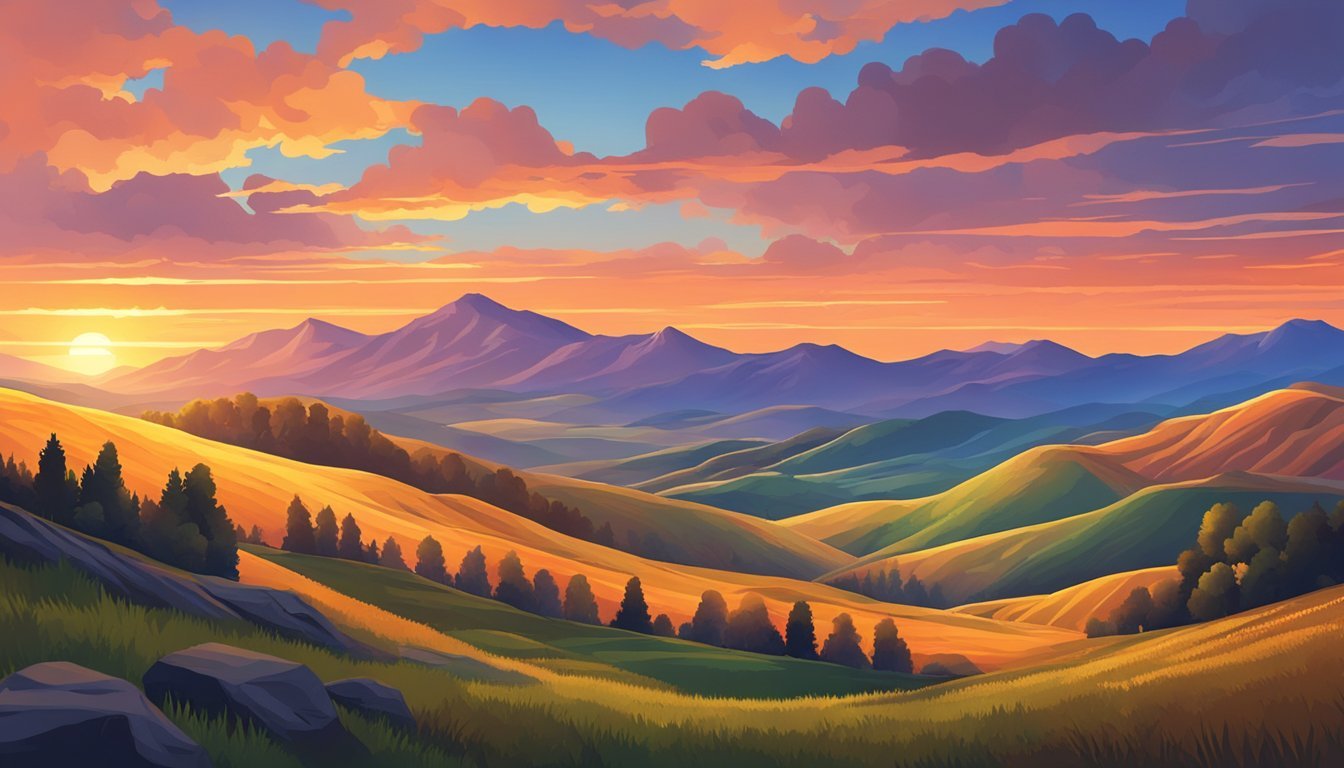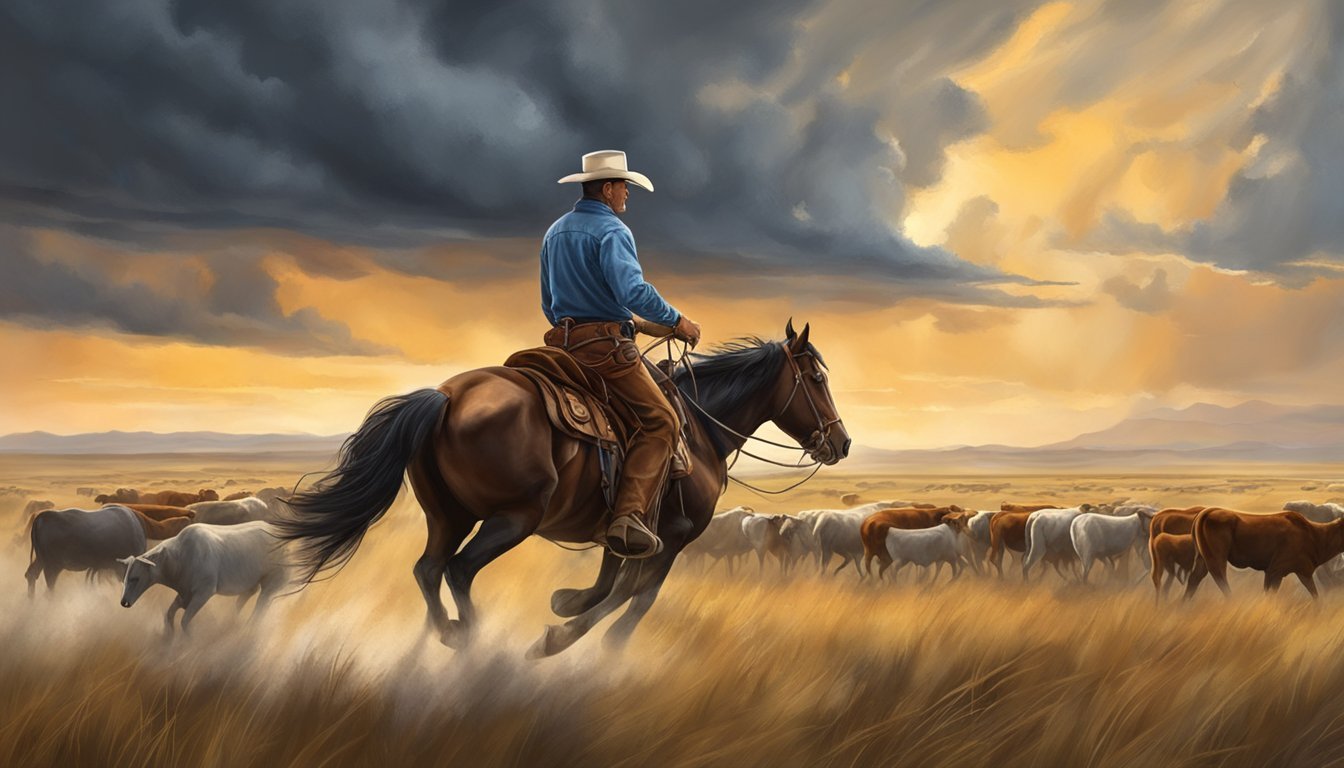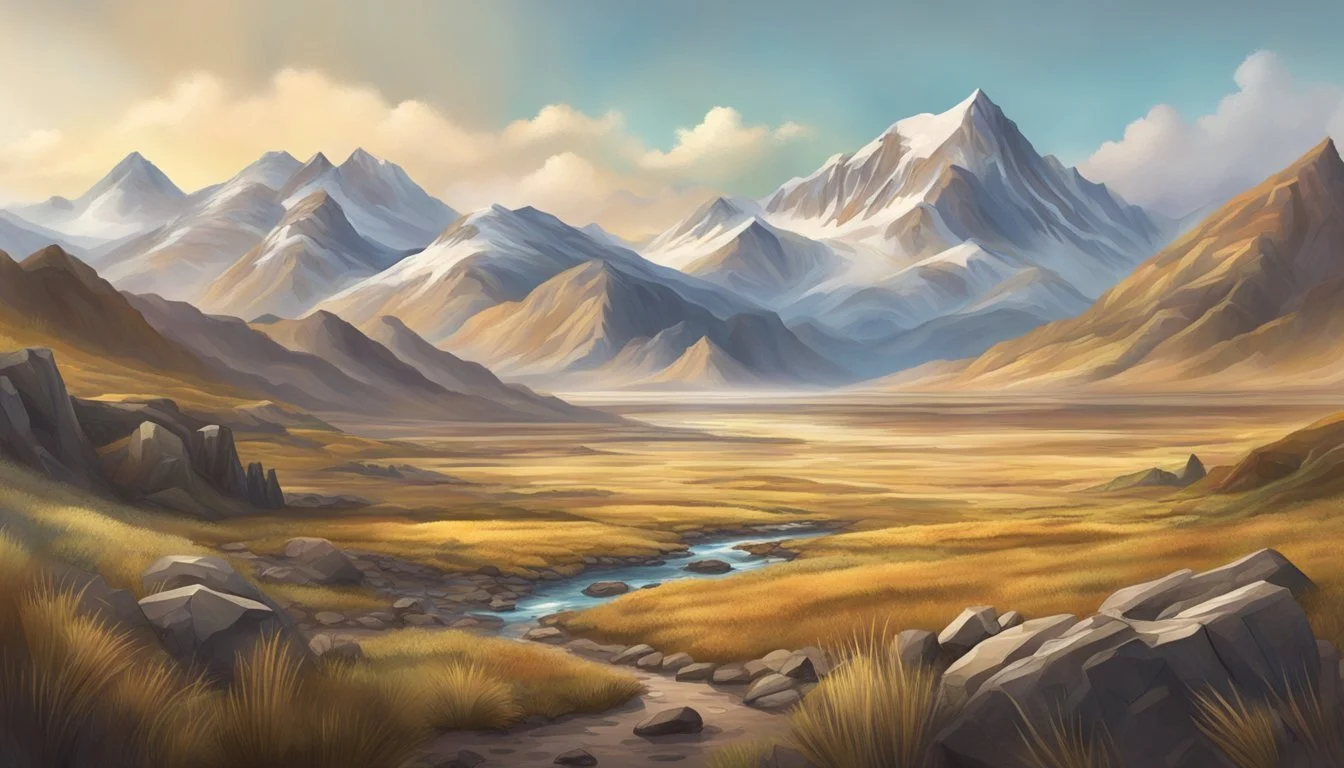7 Ways Yellowstone Has Revolutionized Modern Western TV
Redefining the Genre
Yellowstone has taken the television landscape by storm since its debut in 2018, captivating audiences with its modern take on the Western genre. The show's gritty portrayal of contemporary ranch life and power struggles in Montana has struck a chord with viewers, earning critical acclaim and a devoted fanbase.
Yellowstone has redefined Western storytelling for a new generation, blending classic cowboy themes with complex modern conflicts. Its success has sparked renewed interest in Western-themed television, inspiring a wave of similar shows and spin-offs. This groundbreaking series has not only revitalized the genre but also set new standards for production quality and character development in contemporary TV dramas.
1) Serialized Storytelling
Yellowstone has embraced serialized storytelling, a departure from traditional Western TV formats. This approach allows for deeper character development and complex, interconnected plotlines that unfold over multiple episodes and seasons.
The show's creators have crafted a narrative that keeps viewers engaged week after week. Each episode builds upon the previous ones, creating a rich tapestry of storylines that span the entire series.
This serialized format enables Yellowstone to explore intricate family dynamics and power struggles in greater depth. Characters evolve and relationships change over time, mirroring real-life complexities.
The show's long-form storytelling also allows for the exploration of broader themes such as land rights, political maneuvering, and cultural conflicts. These elements are woven into the ongoing narrative, creating a more nuanced portrayal of the modern American West.
By adopting this approach, Yellowstone has set itself apart from episodic Western shows of the past. It has raised the bar for storytelling in the genre, encouraging viewers to invest in the characters and their journeys over extended periods.
2) Complex Characters
Yellowstone breaks new ground with its nuanced portrayal of characters. The show eschews traditional hero-villain archetypes, presenting individuals with multifaceted personalities and motivations.
John Dutton, played by Kevin Costner, embodies this complexity. As the patriarch of the Dutton family, he fiercely protects his land and legacy. Yet his methods often blur ethical lines, challenging viewers' perceptions of right and wrong.
Beth Dutton, John's daughter, further exemplifies this depth. Her razor-sharp business acumen and loyalty to family coexist with deep-seated trauma and self-destructive tendencies. This layered characterization creates a compelling and unpredictable presence on screen.
Even antagonists receive thoughtful treatment. Characters like Thomas Rainwater and Dan Jenkins are given depth beyond their opposition to the Duttons. Their own struggles and motivations are explored, adding richness to the narrative.
This approach to character development elevates Yellowstone above typical Western tropes. It presents a world where morality is rarely black and white, mirroring the complexities of modern life.
3) Cinematic Visuals
Yellowstone has elevated the visual quality of Western TV dramas to new heights. The show's cinematography captures the breathtaking landscapes of Montana and Utah with stunning precision.
Wide, sweeping shots of vast prairies and rugged mountains create a sense of grandeur that immerses viewers in the American West. These visuals rival those found in big-budget films, setting a new standard for television production.
The series also employs masterful lighting techniques to enhance its visual appeal. Golden hour shots and moody, atmospheric scenes contribute to the show's cinematic feel.
Yellowstone's attention to detail extends to its set design and costuming. Authentic ranch settings and carefully crafted wardrobes add depth and realism to the visual experience.
The show's action sequences are choreographed and filmed with a cinematic flair. From tense confrontations to high-stakes ranch work, these scenes are executed with precision and visual impact.
By bringing film-quality visuals to the small screen, Yellowstone has raised the bar for what audiences expect from modern Western TV dramas.
4) Musical Score by Brian Tyler
Brian Tyler's innovative musical score has played a crucial role in shaping Yellowstone's distinct atmosphere. The composer blends traditional Western instruments with modern elements to create a unique sonic landscape.
Tyler incorporates haunting guitar riffs and sweeping orchestral pieces to underscore emotional moments in the series. His score enhances the show's gritty realism, setting it apart from other television productions.
The composer's approach to Yellowstone's music can be described as a "tragic lullaby" sound. This style effectively captures the essence of the American West and its immigrant roots.
Tyler's work on Yellowstone marked his first foray into the Western genre. Despite this, he has successfully crafted a musical identity that resonates with the show's rugged themes and complex characters.
The score's fusion of classic and contemporary elements mirrors Yellowstone's overall approach to modernizing the Western genre. It contributes significantly to the series' emotional impact and helps create its immersive viewing experience.
5) Gritty Realism
Yellowstone brings a raw, unvarnished portrayal of modern ranch life to television. The show eschews romanticized depictions of the West in favor of stark realism.
Violence, conflict, and moral ambiguity feature prominently in the series. Characters face difficult decisions with far-reaching consequences, often blurring the lines between right and wrong.
The show doesn't shy away from depicting the harsh realities of ranch work and the struggles of maintaining a traditional way of life. It showcases the physical and emotional toll on the characters, adding depth to their motivations and actions.
Yellowstone's gritty approach extends to its exploration of complex issues like land disputes, political corruption, and family dynamics. These elements contribute to a more authentic and nuanced representation of contemporary Western life.
By embracing realism, Yellowstone sets itself apart from previous Western dramas. It presents a world that feels lived-in and authentic, resonating with viewers who appreciate its unflinching portrayal of modern challenges in the American West.
6) Kevin Costner's Performance
Kevin Costner's portrayal of John Dutton in Yellowstone has been a cornerstone of the show's success. His commanding presence brings gravitas to the role of the Dutton family patriarch.
Costner's nuanced performance captures John's complexities as a rancher, businessman, and father. He conveys both strength and vulnerability, making John a relatable character despite his often controversial actions.
The actor's extensive experience in Western films lends authenticity to his portrayal. Costner's deep understanding of the genre shines through in his depiction of a modern cowboy facing contemporary challenges.
His performance has garnered critical acclaim and helped elevate Yellowstone to its status as a cultural phenomenon. Costner's star power has undoubtedly contributed to the show's wide appeal and massive viewership.
Through John Dutton, Costner explores themes of legacy, family, and the changing American West. His portrayal resonates with audiences, creating a character that embodies both traditional values and modern complexities.
7) Strong Female Roles
Yellowstone has made significant strides in portraying complex and powerful female characters. The show breaks away from traditional Western stereotypes by featuring women who are integral to the plot and decision-making processes.
Beth Dutton stands out as a prime example of Yellowstone's strong female representation. Her character is fiercely intelligent, unapologetically ambitious, and unafraid to challenge the male-dominated ranching world.
The series also showcases diverse female roles, from ranch hands to political figures. These characters are not merely supporting cast but often drive the narrative forward with their own storylines and motivations.
Yellowstone's approach to female characters has influenced other modern Westerns. It has set a new standard for creating multidimensional women who are equal players in the rugged landscape of the American West.
By giving women agency and depth, the show has attracted a broader audience. It demonstrates that Westerns can appeal to viewers beyond the traditional male demographic, contributing to the genre's revitalization on television.
Narrative Innovation
Yellowstone has pushed the boundaries of storytelling in modern Western TV. Its innovative approach blends traditional Western elements with contemporary themes and complex character dynamics.
Complex Characters
Yellowstone's characters defy simple categorization. John Dutton, portrayed by Kevin Costner, embodies a modern Western hero with shades of gray. He's not a clear-cut good guy, but a complex figure balancing family loyalty, ranch preservation, and moral compromises.
The show explores the motivations and inner conflicts of its characters in depth. Beth Dutton's fierce business acumen clashes with her emotional vulnerabilities. Rip Wheeler's unwavering loyalty coexists with a capacity for brutal violence.
This nuanced characterization extends to antagonists as well. Characters like Thomas Rainwater and Market Equities CEO Caroline Warner have multi-layered motivations beyond being simple villains.
Interweaving Storylines
Yellowstone's narrative structure intertwines multiple plotlines seamlessly. The show balances:
Family drama within the Dutton clan
Political maneuvering with local and state officials
Land disputes with Native American tribes and developers
Ranch operations and cowboy culture
These threads intersect and influence each other, creating a rich tapestry of storytelling. The series doesn't shy away from complex topics like corporate exploitation, indigenous rights, and environmental concerns.
Yellowstone's pacing alternates between high-stakes confrontations and quieter character moments. This rhythm keeps viewers engaged while allowing for deeper exploration of themes and relationships.
Cultural Impact
Yellowstone has profoundly influenced American television and popular culture. The show's success has reshaped perceptions of the Western genre and sparked renewed interest in rural American stories.
Shaping Western Genre
Yellowstone modernized the Western, blending traditional elements with contemporary themes. The show's portrayal of power struggles, land rights, and family dynamics resonated with viewers. Its success inspired a wave of neo-Western productions, expanding the genre's appeal to new audiences.
Taylor Sheridan's vision brought a fresh perspective to cowboy culture, attracting both long-time Western fans and newcomers. The series' high production values and cinematic style elevated expectations for TV Westerns.
Reviving Interest in Rural Narratives
Yellowstone rekindled public fascination with rural American life. The show's depiction of ranching communities and their challenges brought attention to often-overlooked parts of the country.
This renewed interest extended beyond entertainment, sparking discussions about land use, conservation, and the changing face of the American West. Yellowstone's popularity led to increased tourism in Montana and Wyoming, where the show is set and filmed.
The series also highlighted Native American issues, bringing these perspectives to mainstream audiences. Its cultural impact extends to fashion, with Western-inspired clothing experiencing a resurgence in popularity.



